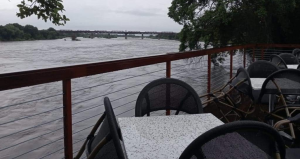By Dewald Cillie, Executive Head, SATIB Insurance Brokers
Thanks to 15 years of load shedding, South Africans have become all too used to rolling blackouts and power outages. And it doesn’t look like this problem will be solved anytime soon. Property owners and businesses have had to find ways to deal with it, and inevitably, insurers are starting to do the same. One of the options on the table is the introduction of grid interruption exclusions because outages can no longer be classified as ‘sudden and unforeseen’.
We’ve been here before, and history tells us that the insurance industry is constantly evolving. Nuclear risks were excluded from insurance for decades because insurers recognised that the potential losses from nuclear power were impossible to determine. South Africa saw an increase in insurance exclusions in the 1980s due to asbestos class action lawsuits and the HIV/AIDS pandemic.
More recently, the devastating effects of recent natural disasters and the COVID-19 pandemic have profoundly impacted the insurance industry. The so-called ‘black swans’ have led to an increase in loss ratios for many insurance companies.
As the insurance industry faces new challenges, actuaries are being called upon to think ahead and identify potential risks. By taking a proactive approach, insurers can be better prepared for future crises. In the years to come, climate change and mental health will likely significantly impact the insurance sector.
What does this mean for companies in South Africa? In addition to possible exclusions, short-term insurance, such as property and vehicle insurance, could become 10-15% more expensive in the coming months, says a KPMG South African Insurance Industry Survey 2022. Alternative risk financing initiatives could reduce the risk for businesses, but further research is needed to determine the best course of action.
There are a few things you can do to keep your insurance rates from going up. Prevention is always better than cure, so try to avoid potential problems before they occur. A risk management plan is the best way to do this; insurance should be just one part of that plan.
As a responsible property owner, it is essential always to be proactive to protect your investment. This means carefully identifying potential risks and taking the necessary steps to mitigate them. While this may take some initial effort, it can ultimately save you a lot of money – not to mention the headaches that come with business interruptions. So, if you receive recommendations after a risk survey, give them due consideration.
When it comes to insurance, the adage ‘you get what you pay for’ definitely applies. Purchasing insurance is not as simple as buying new pens and papers for the office; it is a complex financial decision that can have profound implications down the road.
This is why working with an experienced insurance broker is so important. They can help you find the right policy for your needs and protect you from a potentially catastrophic financial loss.
As we near the end of the year, it’s a good idea to review your insurance policy and ensure you have the coverage you need going into 2023. Feel free to contact us anytime with any questions or concerns. We’re here to help!



